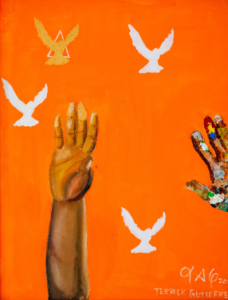Business & Money
I was having a conversation with a friend recently about diversification. He or she was arguing that my portfolio is overly concentrated, and thus risky.
Clearly, as my portfolio indicates, I disagree.
I find that diversification is often oversimplified and overemphasized. People take it to mean that owning more stocks reduces risk. But there’s tons of nuance.
For example, some people own a lot of different companies, but all in the same sector. Is that diversification?
Further, individual companies can be diversified in and of themselves. Take Salesforce, my largest holding. Most people know it for customer relationship management (CRM) software, but that segment makes up less than 30% of revenue. So yes, it’s one company, but with a diversified revenue mix, driven largely by acquisition. Does that count?
Taken to the extreme, consider Constellation Software, another favorite holding of mine. The company follows a holding company structure, similar to Berkshire Hathaway, but purely dedicated to vertical software businesses. Since being founded in 1995, they’ve acquired over 500 companies. If that’s not diversified, I don’t know what is!
In investing and in life, concepts are rarely black or white. The interesting (and profitable) bits often lie somewhere in the grey.
Human Progress
Zeno of Citium is thought of as the founder of Stoicism. He was a merchant before later becoming a philosopher, and thus often took voyages across the Mediterranean to conduct business. On one voyage, he survived a shipwreck and made his way to Athens. There, in a bookstore, he encounters the philosophy of Socrates, greatly altering the course of his life.
To the Stoics, grave hardship and pain is often the most fertile ground for learning and growth. The entire discipline is founded on the very idea.
There’s also a Stoic phrase that goes ‘premeditatio malorum’. It’s about considering the worst possible outcomes just as deeply as those outcomes you want to occur.
I point these ideas out now because our country has arrived at a precarious moment. And regardless of outcome, we must be prepared to roll up our collective sleeves and do the work necessary to create the world we want to live in.
Philosophy
From Track Your Life, Day 13:
Once when I was driving along with Renius, we came to a watering hole. It was the middle of a warm winter’s morning and a small heard of impala were just arriving at the water’s edge. Seeing them, most common of antelope, I thought nothing of it. The road curled so that it skirted to one edge of the watering hole. I barreled on past. The bucks scattered like they tend to do when cars go by. I thought nothing of it. Renius glanced at me sideways. I knew I had blundered in some way. “Those animals are thirsty,” he said. “They come to drink once a day. When you drive by like that with no feeling, you leave them thirsty for the whole day.
When I was young, I took out the trash every week. The trash cans were stashed on the side of the house in a narrow walkway between the house and the fence. So on each Monday night, I would grab a stick and proceed to walk through the walkway waving the stick in front of me as if I was drawing large circles in the air. It was an effective method of destroying spider webs.
Thinking back, you might say I was repeatedly barreling past the watering hole. I’m not sure how long those webs took to build, but it’s quite possible those spiders went hungry for the night.
Perhaps I could have taken the cans out before nightfall, or in the morning even. But the reality is I never once paused to think about it.
How many watering holes have you blundered past?
My Latest Discovery
A friend of mine recently sent me this beautiful piece by Terrick Gutierrez.
